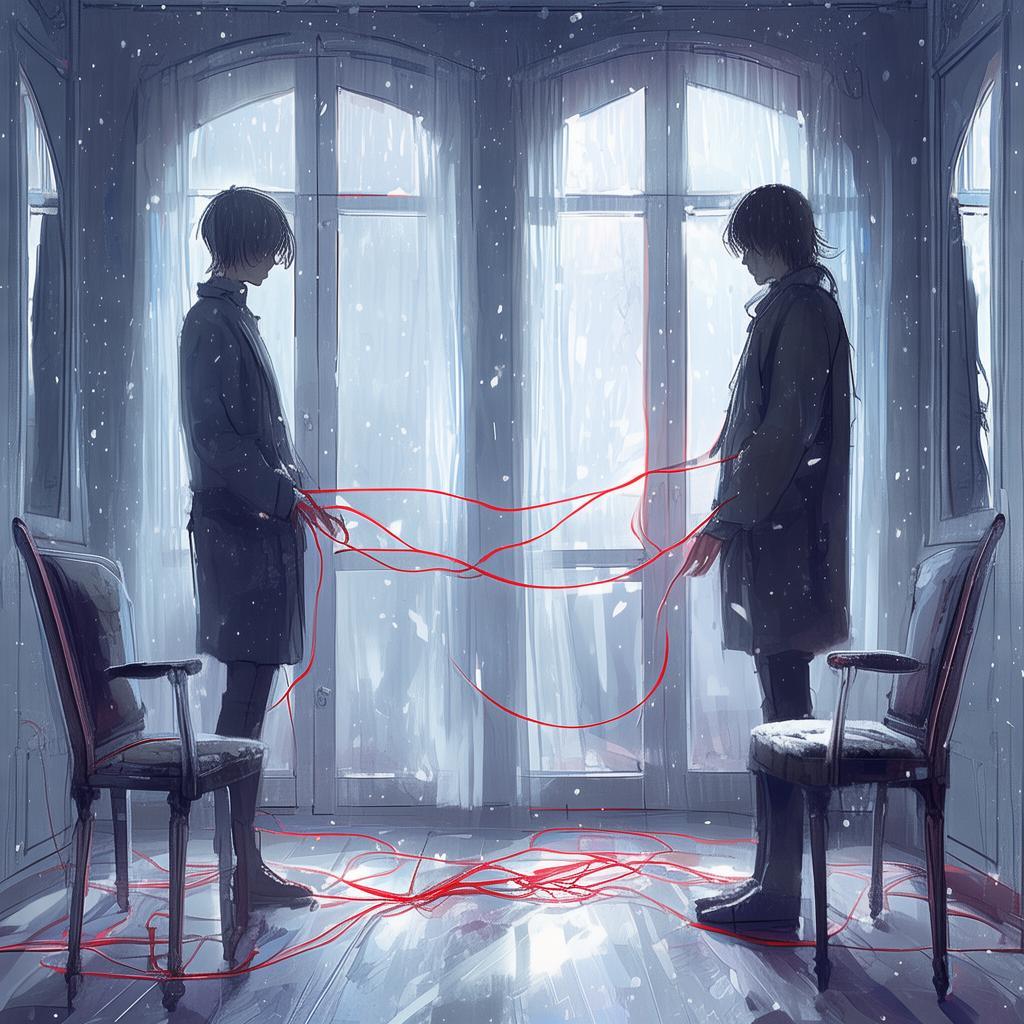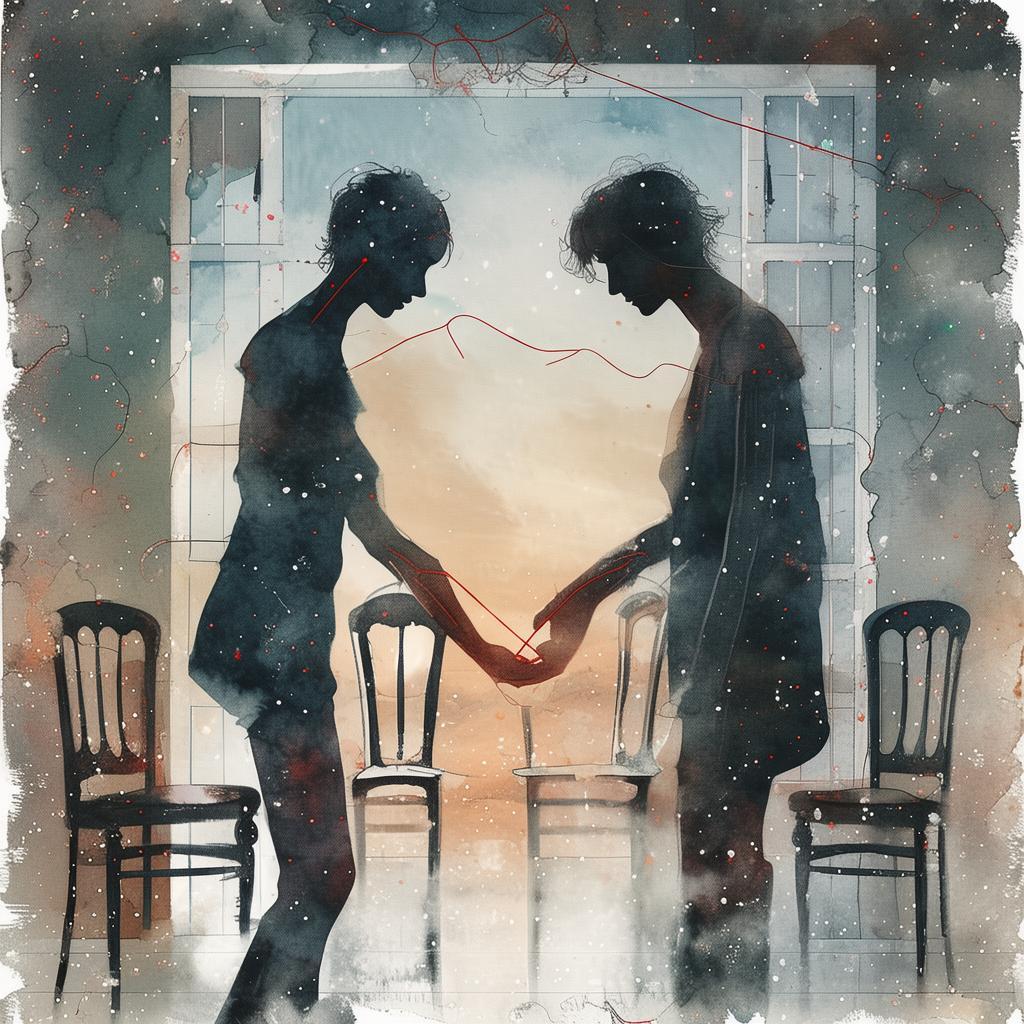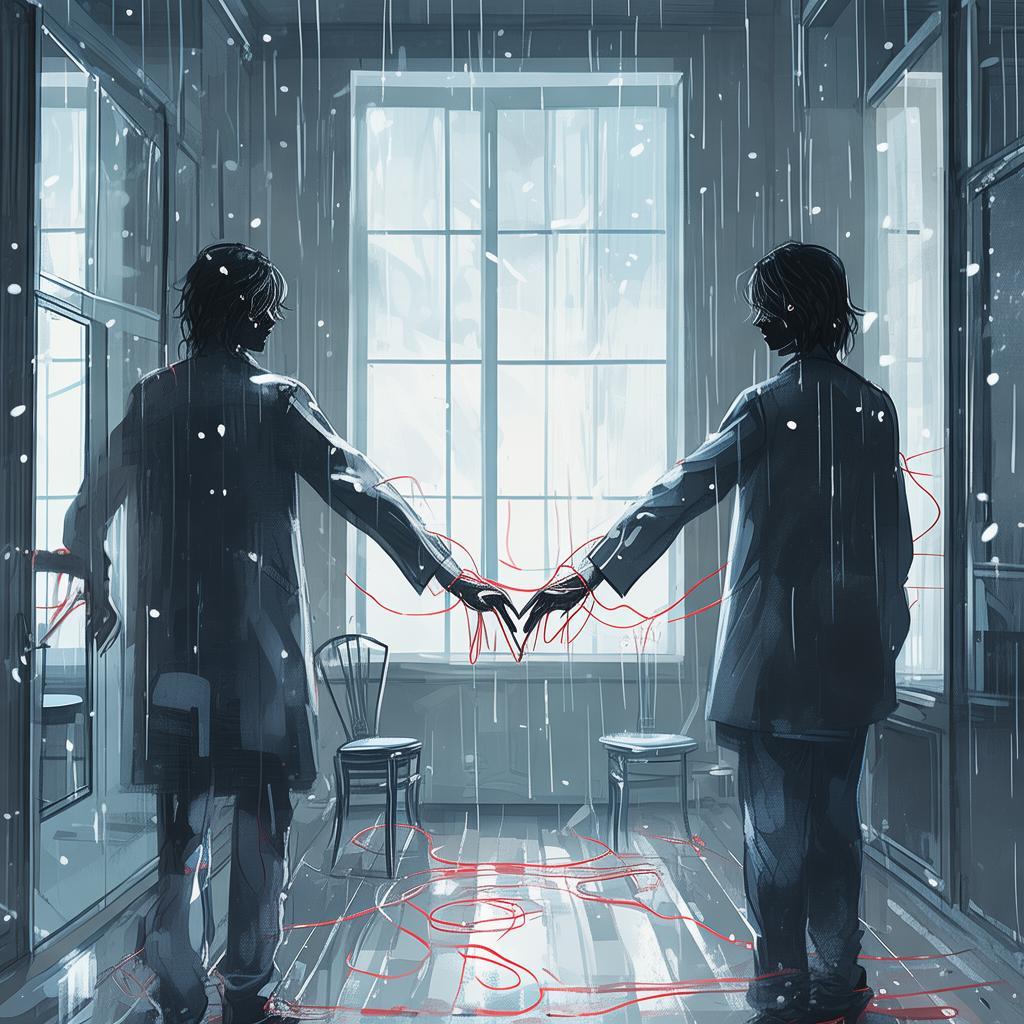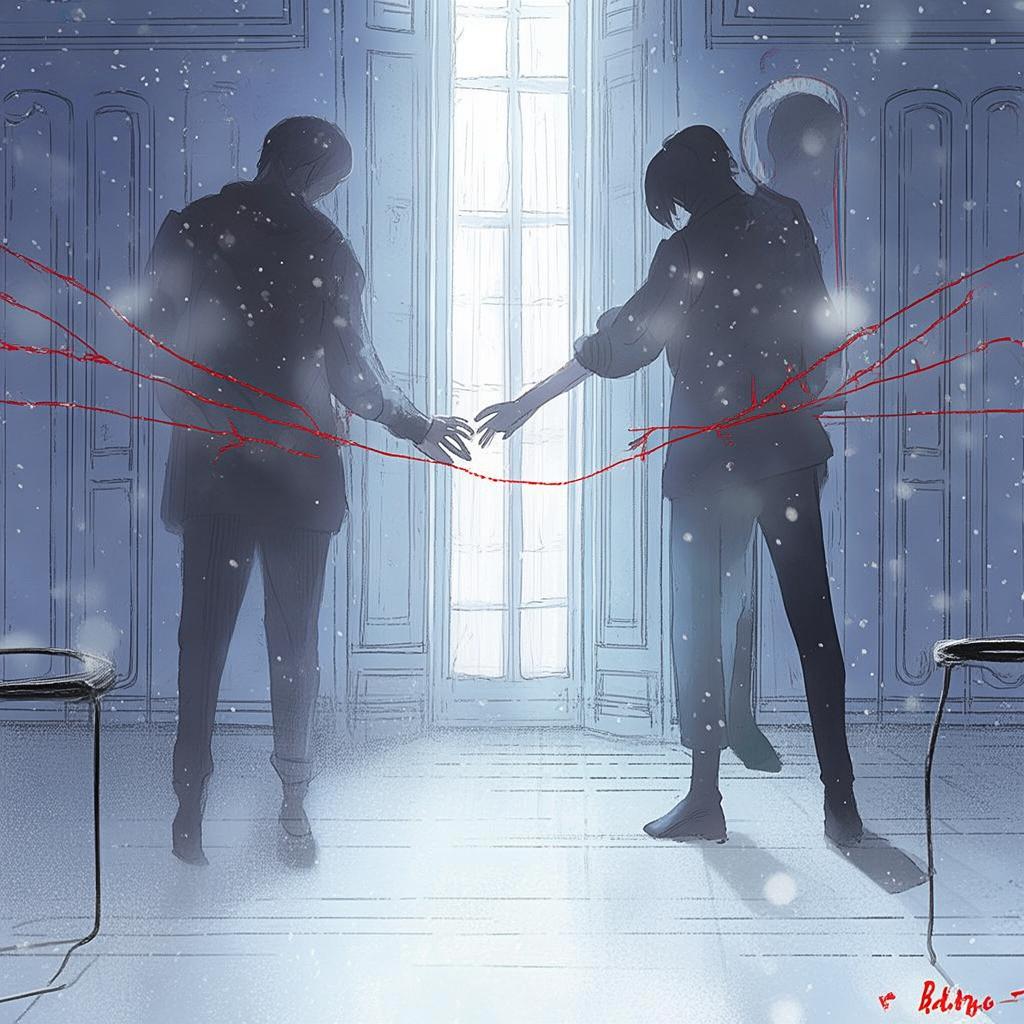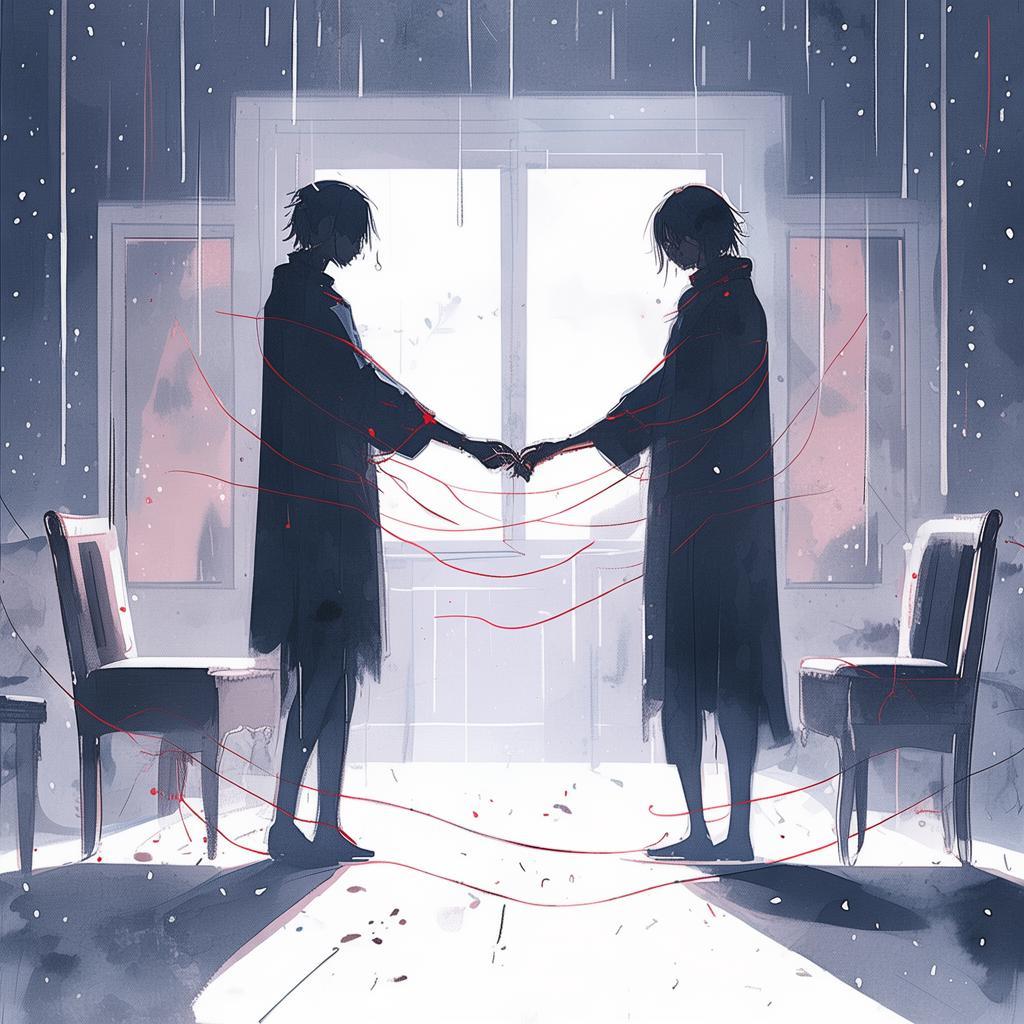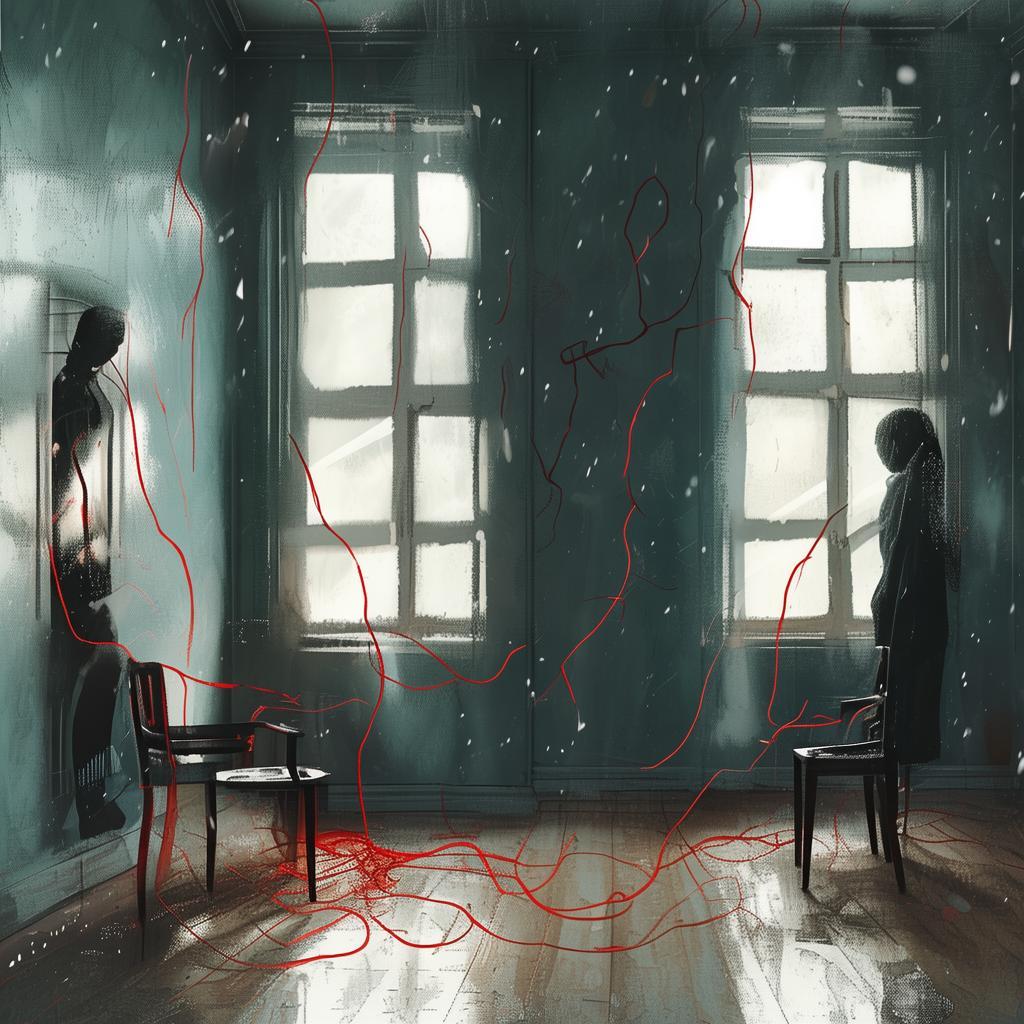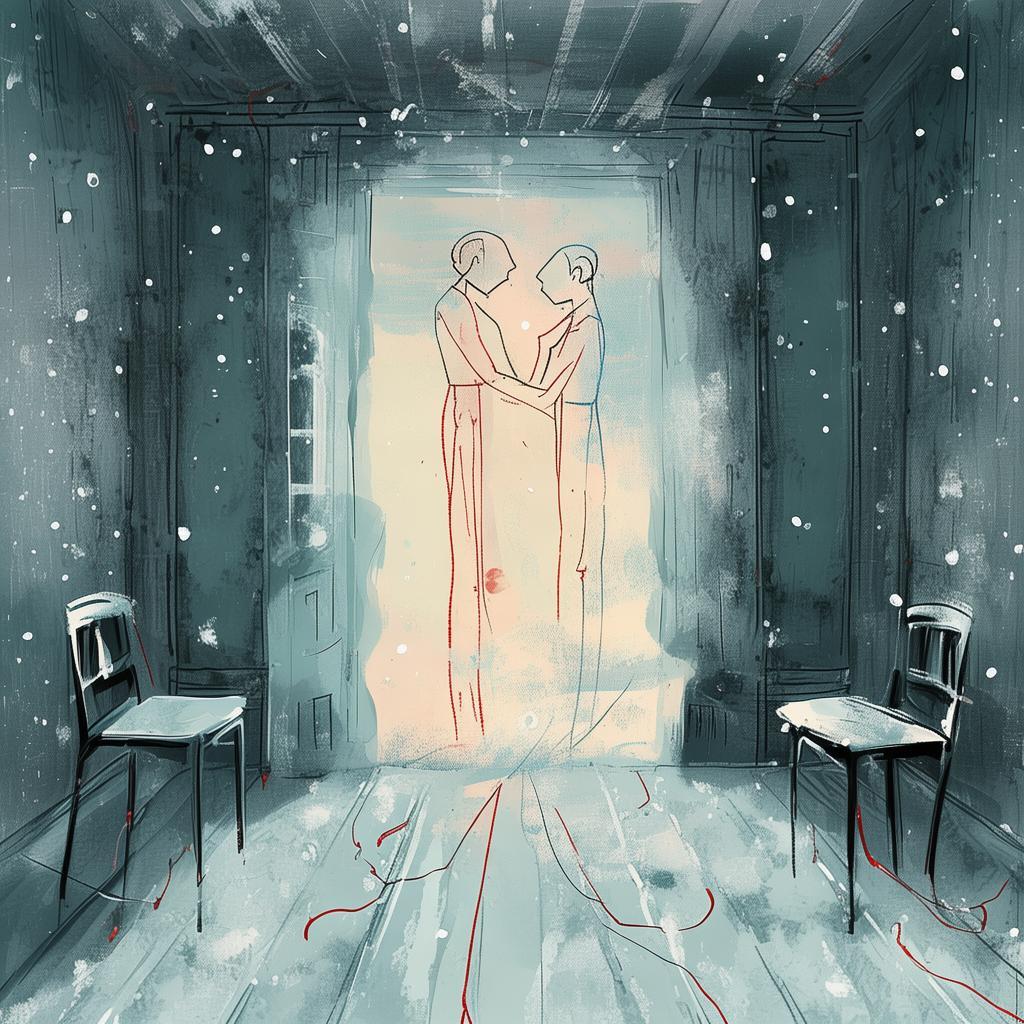Emperor's Shadow: The Scholar's Captive Heart
In the heart of the ancient empire, where power and knowledge were as intertwined as the threads of a delicate tapestry, there lived a scholar whose mind was as vast as the cosmos and whose spirit was as free as the wind. His name was Jing He, and his knowledge was the currency of the court. He was a man of letters, a master of the arts, and a guardian of the empire's secrets.
The Emperor, Yu Liang, was a man of contradictions—a ruler who demanded absolute loyalty but whose heart was as complex as the labyrinthine halls of his palace. His eyes held the promise of power and the shadow of loneliness. He was the embodiment of the empire's might, yet in the quiet of the night, he sought solace in the words of the scholars who served him.
It was on one such night that the lives of Jing He and Yu Liang became inextricably entwined. Jing He had been summoned to the emperor's presence, not for a scholarly debate or a political consultation, but for a more intimate reason. Yu Liang had come to hear him sing—a talent he had only shared with a select few. The melody of Jing He's voice was like a spell, weaving through the emperor's defenses and capturing his heart.
As the days turned into weeks, the emperor's affection for Jing He grew. He was captivated by the scholar's gentle demeanor, his profound intellect, and his unyielding integrity. In return, Jing He found himself drawn to the man who ruled the land, a man who had the power to grant him freedom or to sentence him to a life of solitude and obscurity.

But the empire was a house of cards, and Yu Liang's reign was not without its critics. The court was rife with whispers and plots, and the emperor's affection for Jing He became a target for those who sought to undermine his authority. Betrayal was as common as the wind that swept through the palace gardens, and Jing He found himself caught in the crossfire.
The emperor, in an attempt to protect Jing He, offered him a position of power within the court. However, Jing He, knowing the price of such a position, refused. He feared that the power would corrupt his master and that he would become an instrument of the emperor's will, rather than a man of his own free will.
The tension between the two men reached a boiling point when a traitor was discovered within the ranks of the imperial council. The traitor's betrayal was a thinly veiled attempt to frame Jing He, and the evidence was so convincing that even Yu Liang was swayed. In a moment of blind trust, the emperor ordered Jing He's execution.
Jing He, as he stood before his executioner, felt the weight of the empire's judgment upon his shoulders. He realized that his love for the emperor was a curse, one that had led him to this moment of betrayal and death. As the blade descended, he whispered a silent vow to Yu Liang, a vow that would echo through the ages: "I will never love you less than I do now."
The emperor, in the aftermath of the execution, was consumed by guilt and sorrow. He realized that the power he had wielded had led him to a place of darkness, where love had been exchanged for fear and loyalty for lies. He sought to make amends, but it was too late. Jing He's spirit had vanished, leaving behind only a void that Yu Liang could not fill.
Years passed, and the empire continued to thrive under the rule of Yu Liang. He was a different man, one who had learned the cost of power and the value of love. He often found himself at the edge of the palace gardens, looking out at the sky, where Jing He's spirit was said to roam free.
One evening, as he stood there, the wind picked up, and he felt a presence by his side. He turned to find the figure of Jing He, standing before him, his face serene. The emperor took a step back, nearly tripping over his own feet, as he beheld the ghost of his lost love.
"Master," Jing He said, his voice soft and tender, "I forgive you. I forgive you for the chains you thought you were binding me with, for the life you thought you were saving me from. I was never your captive, for my heart has always been free."
Yu Liang looked into the eyes of the spirit before him, and in that moment, he understood the true nature of love. It was not about the power to control, but the strength to let go. He bowed his head in silent acknowledgment, and as the wind carried away the spirit of Jing He, Yu Liang found peace in the knowledge that he had been loved, truly loved, by a man who had never belonged to him.
And so, the tale of the Emperor's Enslaved Scholar became a legend, a story of love, power, and redemption, one that would be told for generations to come.
✨ Original Statement ✨
All articles published on this website (including but not limited to text, images, videos, and other content) are original or authorized for reposting and are protected by relevant laws. Without the explicit written permission of this website, no individual or organization may copy, modify, repost, or use the content for commercial purposes.
If you need to quote or cooperate, please contact this site for authorization. We reserve the right to pursue legal responsibility for any unauthorized use.
Hereby declared.


